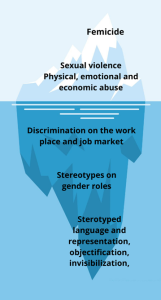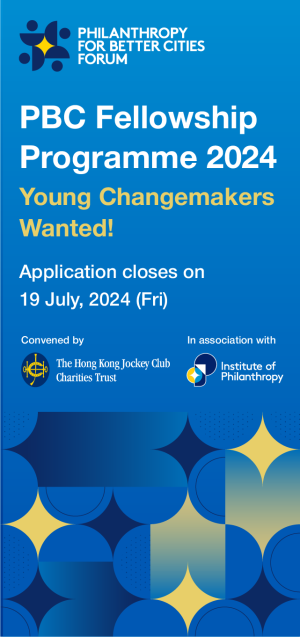Every three days a man murders a woman in Italy; in 2023 there were 120 reported cases.
Furthermore, the mainstream media narrative in the aftermath of these murders perpetuates the insidious cycle of gender-based violence: carousels of sugar-coated depictions of the perpetrator’s life and his remorse, statements on the unpredictability of the event, and a disturbing quest for justifications, with police officer and judges in Italy who seem to lack awareness of the literature related to freezing. This dangerous approach further contributes to the invisibilization of the victim and her story, oversimplifying the issue into its mere symptoms.
 We are thoroughly aware that these tragic acts represent solely the visible tip of a much larger iceberg with deep-seated roots. This tip includes a staggering 31.5 percent of women in Italy aged 16 to 70 who have endured some form of physical or sexual violence throughout their lives. In this context, the Italian government exacerbated the situation by significantly reducing funding for the prevention of violence against women by 70 percent.
We are thoroughly aware that these tragic acts represent solely the visible tip of a much larger iceberg with deep-seated roots. This tip includes a staggering 31.5 percent of women in Italy aged 16 to 70 who have endured some form of physical or sexual violence throughout their lives. In this context, the Italian government exacerbated the situation by significantly reducing funding for the prevention of violence against women by 70 percent.
Intervening in support of anti-violence centres and social initiatives committed to safeguarding women is undoubtedly required to address the immediate manifestations of a pervasive and destructive system. Notably, some community foundations in Italy are remarkably engaged in providing secure havens for women who have fallen victim to violence by offering starting points to rebuild their lives and facilitating their reintegration into society with enhanced empowerment.
‘Philanthropy should strategically utilize its resources, and exercise its freedom to experiment, aiming to address the systemic root causes beneath the symptoms, and promote transformative change.’
Such answers are however partial. Building on these efforts, philanthropy should strategically utilize its resources, and exercise its freedom to experiment, aiming to address the systemic root causes beneath the symptoms, and promote transformative change. This shift in the philanthropic approach becomes imperative in a country where one in ten women report being denied employment by their partners and 31 percent of women lack access to a personal bank account. Almost one in five women stops working after having a child, with the main reason being the burden of caregiving responsibilities predominantly falling on them (52 percent).
Gender inequities become more pronounced when considering intersections: marginalized women face a higher risk of physical and psychological violence due to an even more limited access to an independent life. Italy’s Southern regions – which are also the poorest – register the lowest rates in Europe in terms of female employment, while 60 percent of foreign women engaged in the domestic and care sectors lack a regular employment contract and receive an hourly compensation of less than 4 euros. Indeed, according to the Gender Equality Index, gender inequalities are strongly pronounced in the domain of work, in which the country has consistently ranked last in the EU since 2010.
A remarkable Italian example addressing the issue of gender-based violence starting from one of its root causes – namely economic violence – is FEduF Foundation supporting programmes dedicated to the financial education of women and girls, to tackle financial illiteracy and ensure personal autonomy and freedom of choice.
A thorough analysis of social inequalities’ root causes is crucial for funders seeking to transcend mere donations aimed at alleviating suffering. It is essential for those who intend to address the core of urgent phenomena impacting our society, thus fulfilling their sacred mission as philanthropic entities.
Embracing a systems’ mindset requires drawing insights from the wisdom and experience of social innovators active in the field, and directly engaging the ones affected by the issue in the solution design process. Equipped with this understanding, philanthropic organizations can design more intentional and effective contributions.
This perspective becomes increasingly significant if we consider that the profound social challenges we face today are rooted in even deeper causes. At the bottom of the iceberg of gender-based violence and inequality lies a pervasive patriarchal culture, prominently evident in Italy in the mainstream mindsets and narratives. Thirty percent of Italians believe that success in the workplace is far more important for men, while one third consider men less suitable for household chores. Regarding perceptions of sexual violence, 39 percent of the population across all ages believes that women who refuse sexual intercourse can avoid it, and 23.9 percent hold the belief that women can provoke sexual violence based on their clothing choices.
‘A thorough analysis of social inequalities’ root causes is crucial for funders seeking to transcend mere donations aimed at alleviating suffering.’
It is evident that we are confronted with a need for a cultural paradigm shift, that must be promoted at all levels of intervention and must engage all system’s actors, including philanthropic entities. They should utilize their power and influence to advocate for adequate programs of emotional education in schools, launch extensive awareness campaigns for narrative change, and support initiatives that aim to highlight women’s history. This includes putting an end to the systematic invisibility of all those who have contributed to society’s progress, promote programs and eventually policies that rebalance the division of caregiving responsibilities and women’s independence.
Such quest requires philanthropy to find, fund, and support transformative solutions at a far greater pace than ever, and provide support beyond ‘quick fixes’ projects with predetermined performance metrics. This means endorsing flexible, unknown, and long-term pathways, fostering the development of the entire social organization, not solely the specific direct service provided, shifting from individual initiatives to collaborative systems. This is the only way to delve into the foundational elements of social paradigms, deconstruct them, and initiate a collective and systemic process of rebuilding.
‘At the bottom of the iceberg of gender-based violence and inequality lies a pervasive patriarchal culture, prominently evident in Italy in the mainstream mindsets and narratives.’
Hence, the philanthropic endeavour toward profound cultural transformation becomes vital. In Italy in the last couple of years emerged two notable initiatives that have the potential to be transformative. Fondazione Una Nessuna Centomila, established in November 2022, operates on dual fronts: immediate response, by supporting anti-violence centres, and long-term mindset shift, through engaging artists, musicians, singers, theatre and cinema, and educational programs. Finally Semia, the first feminist fund in Italy, established in January 2023, dedicated to supporting the Italian feminist movement: organizations, groups, collectives, and activists trough a participatory grant making scheme. These two initiatives instil a sense of radical hope, serving as two heralds of spring within the realm of Italian philanthropy.
Andrea Chiara Brancale is Junior Project Officer at Assifero, the Italian association of foundations and philanthropic entities.
Giulia Sergi is European Program Manager at Ashoka, a global NGO the selects and supports the world’s leading social entrepreneurs and innovators.





Comments (0)